The Confidence-Man
Appearance

The Confidence-Man: His Masquerade is an 1857 work by Herman Melville.
Quotes
[edit]- At sunrise on a first of April there appeared, suddenly as Manco Capac at the lake Titicaca, a man in cream-colors, at the water-side in the city of St. Louis.
His cheek was fair, his chin downy, his hair flaxen, his hat a white fur one, with a long fleecy nap. He had neither trunk, valise, carpet-bag, nor parcel. No porter followed him. He was unaccompanied by friends. From the shrugged shoulders, titters, whispers, wonderings of the crowd, it was plain that he was, in the extremest sense of the word, a stranger.- Ch. 1, First lines
- The mind is ductile, very much so: but images, ductilely received into it, need a certain time to harden and bake in their impressions, otherwise such a casualty as I speak of will in an instant obliterate them, as though they had never been. We are but clay, sir, potter's clay, as the good book says, clay, feeble, and too-yielding clay.
- Ch. 4

- Pardon me, but you must admit, that just now, an unpleasant distrust, however vague, was yours. Ah, shallow as it is, yet, how subtle a thing is suspicion, which at times can invade the humanest of hearts and wisest of heads. But, enough. My object, sir, in calling your attention to this stock, is by way of acknowledgment of your goodness. I but seek to be grateful; if my information leads to nothing, you must remember the motive.
- Ch. 4
- Well, there is sorrow in the world, but goodness too; and goodness that is not greenness, either, no more than sorrow is.
- Ch. 5
- To be full of warm, earnest words, and heart-felt protestations, is to create a scene; and well-bred people dislike few things more than that; which would seem to look as if the world did not relish earnestness; but, not so; because the world, being earnest itself, likes an earnest scene, and an earnest man, very well, but only in their place — the stage.
- Ch. 5
- Now, young friend, perhaps you think that Tacitus, like me, is only melancholy; but he's more — he's ugly. A vast difference, young sir, between the melancholy view and the ugly. The one may show the world still beautiful, not so the other. The one may be compatible with benevolence, the other not. The one may deepen insight, the other shallows it.
- Ch. 5
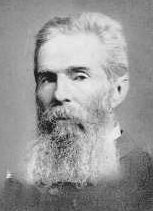
- Yes, learn from me that, though the sorrows of the world are great, its wickedness — that is, its ugliness — is small.
- Ch. 5
- I myself have known adversity, and know it still. But for that, do I turn cynic? No, no: it is small beer that sours. To my fellow-creatures I owe alleviations. So, whatever I may have undergone, it but deepens my confidence in my kind.
- Ch. 5
- Tacitus — he is the most extraordinary example of a heretic; not one iota of confidence in his kind. What a mockery that such an one should be reputed wise, and Thucydides be esteemed the statesman's manual!
- Ch. 5
- Look, you, you on others' behalf ask for money; you, a fellow with a face as long as my arm. Hark ye, now: there is such a thing as gravity, and in condemned felons it may be genuine; but of long faces there are three sorts: that of grief's drudge, that of the lantern-jawed man, and that of the impostor. You know best which yours is.
- Ch. 7
- It is one of the imbecilities of the suspicious person to fancy that every stranger, however absent-minded, he sees so much as smiling or gesturing to himself in any odd sort of way, is secretly making him his butt.
- Ch. 7
- Admit, as you must, that mankind is not mad, and my project is practicable. For, what creature but a madman would not rather do good than ill, when it is plain that, good or ill, it must return upon himself?
- Ch. 7

- Goneril held it flattery to hint praise even of the absent, and even if merited; but honesty, to fling people's imputed faults into their faces. This was thought malice, but it certainly was not passion. Passion is human.
- Ch. 12
- If reason be judge, no writer has produced such inconsistent characters as nature herself has. It must call for no small sagacity in a reader unerringly to discriminate in a novel between the inconsistencies of conception and those of life as elsewhere. Experience is the only guide here; but as no one man can be coextensive with what is, it may be unwise in every case to rest upon it.
- Ch. 14
- While religion, contrary to the common notion, implies, in certain cases, a spirit of slow reserve as to assent, infidelity, which claims to despise credulity, is sometimes swift to it.
- Ch. 28
- Misanthropy, springing from the same root with disbelief of religion, is twin with that. It springs from the same root, I say; for, set aside materialism, and what is an atheist, but one who does not, or will not, see in the universe a ruling principle of love; and what a misanthrope, but one who does not, or will not, see in man a ruling principle of kindness? Don't you see? In either case the vice consists in a want of confidence.
- Ch. 28

- "Like you," said the stranger, "I can't understand the misanthrope. So far as my experience goes, either mankind is worthy one's best love, or else I have been lucky. Never has it been my lot to have been wronged, though but in the smallest degree. Cheating, backbiting, superciliousness, disdain, hard-heartedness, and all that brood, I know but by report. Cold regards tossed over the sinister shoulder of a former friend, ingratitude in a beneficiary, treachery in a confidant — such things may be; but I must take somebody's word for it. Now the bridge that has carried me so well over, shall I not praise it?"
"Ingratitude to the worthy bridge not to do so. Man is a noble fellow, and in an age of satirists, I am not displeased to find one who has confidence in him, and bravely stands up for him."- Ch. 28
- A reply must in civility be made to a certain voice which methinks I hear, that, in view of past chapters, and more particularly the last, where certain antics appear, exclaims: How unreal all this is! Who did ever dress or act like your cosmopolitan? And who, it might be returned, did ever dress or act like harlequin?
Strange, that in a work of amusement, this severe fidelity to real life should be exacted by any one, who, by taking up such a work, sufficiently shows that he is not unwilling to drop real life, and turn, for a time, to something different. Yes, it is, indeed, strange that any one should clamor for the thing he is weary of; that any one, who, for any cause, finds real life dull, should yet demand of him who is to divert his attention from it, that he should be true to that dullness.- Ch. 33
- If, then, something is to be pardoned to well-meant endeavor, surely a little is to be allowed to that writer who, in all his scenes, does but seek to minister to what, as he understands it, is the implied wish of the more indulgent lovers of entertainment, before whom harlequin can never appear in a coat too parti-colored, or cut capers too fantastic.
- Ch. 33
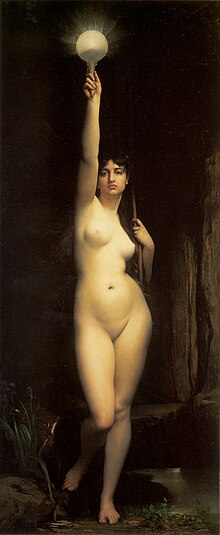
- If ever, in days to come, you shall see ruin at hand, and, thinking you understand mankind, shall tremble for your friendships, and tremble for your pride; and, partly through love for the one and fear for the other, shall resolve to be beforehand with the world, and save it from a sin by prospectively taking that sin to yourself, then will you do as one I now dream of once did, and like him will you suffer; but how fortunate and how grateful should you be, if like him, after all that had happened, you could be a little happy again.
- Ch. 34
- Yours, sir, if I mistake not, must be a beautiful soul — one full of all love and truth; for where beauty is, there must those be.
- Ch. 36
- "I am pleased to believe that beauty is at bottom incompatible with ill, and therefore am so eccentric as to have confidence in the latent benignity of that beautiful creature, the rattle-snake, whose lithe neck and burnished maze of tawny gold, as he sleekly curls aloft in the sun, who on the prairie can behold without wonder?"
As he breathed these words, he seemed so to enter into their spirit — as some earnest descriptive speakers will — as unconsciously to wreathe his form and sidelong crest his head, till he all but seemed the creature described. Meantime, the stranger regarded him with little surprise, apparently, though with much contemplativeness of a mystical sort, and presently said: "When charmed by the beauty of that viper, did it never occur to you to change personalities with him? to feel what it was to be a snake? to glide unsuspected in grass? to sting, to kill at a touch; your whole beautiful body one iridescent scabbard of death? In short, did the wish never occur to you to feel yourself exempt from knowledge, and conscience, and revel for a while in the care-free, joyous life of a perfectly instinctive, unscrupulous, and irresponsible creature?"- Ch. 36
- I do not think I have any uncharitable prejudice against the rattle-snake, still, I should not like to be one. If I were a rattle-snake now, there would be no such thing as being genial with men — men would be afraid of me, and then I should be a very lonesome and miserable rattle-snake.
- Ch. 36
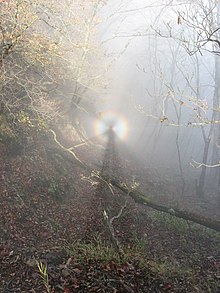
- You speak of a certain philosophy, and a more or less occult one it may be, and hint of its bearing upon practical life; pray, tell me, if the study of this philosophy tends to the same formation of character with the experiences of the world?"
"It does; and that is the test of its truth; for any philosophy that, being in operation contradictory to the ways of the world, tends to produce a character at odds with it, such a philosophy must necessarily be but a cheat and a dream."- Ch. 37
- Man came into this world, not to sit down and muse, not to befog himself with vain subtleties, but to gird up his loins and to work. Mystery is in the morning, and mystery in the night, and the beauty of mystery is everywhere; but still the plain truth remains, that mouth and purse must be filled. If, hitherto, you have supposed me a visionary, be undeceived. I am no one-ideaed one, either; no more than the seers before me.
- Ch. 37
- Along with whatever else it may be given me to be, I am a man of serviceable knowledge, and a man of the world. Know me for such. And as for my disciple here," turning towards him, "if you look to find any soft Utopianisms and last year's sunsets in him, I smile to think how he will set you right. The doctrines I have taught him will, I trust, lead him neither to the mad-house nor the poor-house, as so many other doctrines have served credulous sticklers.
- Ch. 37
- "Help? to say nothing of the friend, there is something wrong about the man who wants help. There is somewhere a defect, a want, in brief, a need, a crying need, somewhere about that man."
- Ch. 39, The Hypothetical Friends; this is a quote from words spoken by Melville's character Charlie Noble in turning down his childhood friend Frank Goodman's desperate plea for a loan.

- "With what heart," cried Frank, still in character, "have you told me this story? A story I can no way approve; for its moral, if accepted, would drain me of all reliance upon my last stay, and, therefore, of my last courage in life. For, what was that bright view of China Aster but a cheerful trust that, if he but kept up a brave heart, worked hard, and ever hoped for the best, all at last would go well? If your purpose, Charlie, in telling me this story, was to pain me, and keenly, you have succeeded; but, if it was to destroy my last confidence, I praise God you have not."
- Ch. 41
- You have hearkened to my story in vain, if you do not see that, however indulgent and right-minded I may seem to you now, that is no guarantee for the future. And into the power of that uncertain personality which, through the mutability of my humanity, I may hereafter become, should not common sense dissuade you, my dear Frank, from putting yourself?
- Ch. 41


- There is no bent of heart or turn of thought which any man holds by virtue of an unalterable nature or will. Even those feelings and opinions deemed most identical with eternal right and truth, it is not impossible but that, as personal persuasions, they may in reality be but the result of some chance tip of Fate's elbow in throwing her dice. For, not to go into the first seeds of things, and passing by the accident of parentage predisposing to this or that habit of mind, descend below these, and tell me, if you change this man's experiences or that man's books, will wisdom go surety for his unchanged convictions? As particular food begets particular dreams, so particular experiences or books particular feelings or beliefs. I will hear nothings of that fine babble about development and its laws; there is no development in opinion and feeling but the developments of time and tide. You may deem all this talk idle, Frank; but conscience bids me show you how fundamental the reasons for treating you as I do."
- Ch. 41
- With these words and a grand scorn the cosmopolitan turned on his heel, leaving his companion at a loss to determine where exactly the fictitious character had been dropped, and the real one, if any, resumed.
- Ch. 41
- "So you are a philanthropist, sir," added the barber with an illuminated look; "that accounts, then, for all. Very odd sort of man the philanthropist. You are the second one, sir, I have seen. Very odd sort of man, indeed, the philanthropist. Ah, sir," again meditatively stirring in the shaving-cup," I sadly fear, lest you philanthropists know better what goodness is, than what men are." Then, eying him as if he were some strange creature behind cage-bars, "So you are a philanthropist, sir." "I am Philanthropos, and love mankind. And, what is more than you do, barber, I trust them."
- Ch. 43
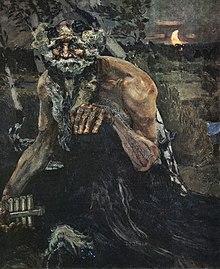
- "I think I understand," with a saddened look; "and much the same thing I have heard from persons in pursuits different from yours — from the lawyer, from the congressman, from the editor, not to mention others, each, with a strange kind of melancholy vanity, claiming for his vocation the distinction of affording the surest inlets to the conviction that man is no better than he should be. All of which testimony, if reliable, would, by mutual corroboration, justify some disturbance in a good man's mind. But no, no; it is a mistake — all a mistake."
- Ch. 43
- "I agree with you in thinking that the lawyer, and the congressman, and the editor, are in error, but only in so far as each claims peculiar facilities for the sort of knowledge in question; because, you see, sir, the truth is, that every trade or pursuit which brings one into contact with the facts, sir, such trade or pursuit is equally an avenue to those facts."
- Ch. 43
- "Do you think, then, barber, that, in a certain point, all the trades and callings of men are much on a par? Fatal, indeed," raising his hand, "inexpressibly dreadful, the trade of the barber, if to such conclusions it necessarily leads. Barber," eying him not without emotion, "you appear to me not so much a misbeliever, as a man misled. Now, let me set you on the right track; let me restore you to trust in human nature, and by no other means than the very trade that has brought you to suspect it."
- Ch. 43
- In after days, telling the night's adventure to his friends, the worthy barber always spoke of his queer customer as the man-charmer — as certain East Indians are called snake-charmers — and all his friends united in thinking him QUITE AN ORIGINAL.
- Ch. 43
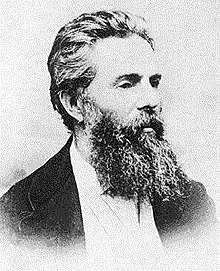
- "QUITE AN ORIGINAL:" A phrase, we fancy, rather oftener used by the young, or the unlearned, or the untraveled, than by the old, or the well-read, or the man who has made the grand tour. Certainly, the sense of originality exists at its highest in an infant, and probably at its lowest in him who has completed the circle of the sciences.
- Ch. 44
- Where does any novelist pick up any character? For the most part, in town, to be sure. Every great town is a kind of man-show, where the novelist goes for his stock, just as the agriculturist goes to the cattle-show for his. But in the one fair, new species of quadrupeds are hardly more rare, than in the other are new species of characters — that is, original ones. Their rarity may still the more appear from this, that, while characters, merely singular, imply but singular forms so to speak, original ones, truly so, imply original instincts.
- Ch. 44
- For much the same reason that there is but one planet to one orbit, so can there be but one such original character to one work of invention.
Two would conflict to chaos. In this view, to say that there are more than one to a book, is good presumption there is none at all. But for new, singular, striking, odd, eccentric, and all sorts of entertaining and instructive characters, a good fiction may be full of them. To produce such characters, an author, beside other things, must have seen much, and seen through much: to produce but one original character, he must have had much luck.- Ch. 44

- "I am one who thinks well of man. I love man. I have confidence in man. But what was told me not a half-hour since?
I was told that I would find it written — 'Believe not his many words — an enemy speaketh sweetly with his lips' — and also I was told that I would find a good deal more to the same effect, and all in this book. I could not think it; and, coming here to look for myself, what do I read? Not only just what was quoted, but also, as was engaged, more to the same purpose, such as this: 'With much communication he will tempt thee; he will smile upon thee, and speak thee fair, and say What wantest thou? If thou be for his profit he will use thee; he will make thee bear, and will not be sorry for it. Observe and take good heed. When thou hearest these things, awake in thy sleep."- Ch. 45

- "Ah!" cried the old man, brightening up, "now I know. Look," turning the leaves forward and back, till all the Old Testament lay flat on one side, and all the New Testament flat on the other, while in his fingers he supported vertically the portion between, "look, sir, all this to the right is certain truth, and all this to the left is certain truth, but all I hold in my hand here is apocrypha."
"Apocrypha?"
"Yes; and there's the word in black and white," pointing to it. "And what says the word? It says as much as 'not warranted;' for what do college men say of anything of that sort? They say it is apocryphal. The word itself, I've heard from the pulpit, implies something of uncertain credit. So if your disturbance be raised from aught in this apocrypha," again taking up the pages, "in that case, think no more of it, for it's apocrypha."- Ch. 45
- I cannot tell you how thankful I am for your reminding me about the apocrypha here. For the moment, its being such escaped me. Fact is, when all is bound up together, it's sometimes confusing. The uncanonical part should be bound distinct. And, now that I think of it, how well did those learned doctors who rejected for us this whole book of Sirach. I never read anything so calculated to destroy man's confidence in man. This son of Sirach even says — I saw it but just now: 'Take heed of thy friends'; not, observe, thy seeming friends, thy hypocritical friends, thy false friends, but thy friends, thy real friends — that is to say, not the truest friend in the world is to be implicitly trusted. Can Rochefoucault equal that? I should not wonder if his view of human nature, like Machiavelli's, was taken from this Son of Sirach. And to call it wisdom — the Wisdom of the Son of Sirach! Wisdom, indeed! What an ugly thing wisdom must be! Give me the folly that dimples the cheek, say I, rather than the wisdom that curdles the blood. But no, no; it ain't wisdom; it's apocrypha, as you say, sir. For how can that be trustworthy that teaches distrust?"
- Ch. 45
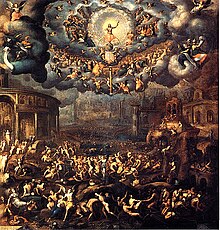
- What a peck of trouble that Detector makes for you now; believe me, the bill is good; don't be so distrustful. Proves what I've always thought, that much of the want of confidence, in these days, is owing to these Counterfeit Detectors you see on every desk and counter. Puts people up to suspecting good bills. Throw it away, I beg, if only because of the trouble it breeds you.
- Ch. 45
- With you, sir, I believe in a Committee of Safety, holding silent sessions over all, in an invisible patrol, most alert when we soundest sleep, and whose beat lies as much through forests as towns, along rivers as streets. In short, I never forget that passage of Scripture which says, "Jehovah shall be thy confidence." The traveler who has not this trust, what miserable misgivings must be his; or, what vain, short-sighted care must he take of himself.
- Ch. 45
- "Then, good-night, good-night; and Providence have both of us in its good keeping."
"Be sure it will," eying the old man with sympathy, as for the moment he stood, money-belt in hand, and life-preserver under arm, "be sure it will, sir, since in Providence, as in man, you and I equally put trust.- Ch. 45
- The next moment, the waning light expired, and with it the waning flames of the horned altar, and the waning halo round the robed man's brow; while in the darkness which ensued, the cosmopolitan kindly led the old man away. Something further may follow of this Masquerade.
- Ch. 45
External links
[edit]- Free eBook of The Confidence-Man at Project Gutenberg
- The Confidence-Man and introductory material
- Online text of the novel at the Electronic Text Center, University of Virginia Library
- Critical reaction to and a publishing history of The Confidence-Man: His Masquerade from The Life and Works of Herman Melville


